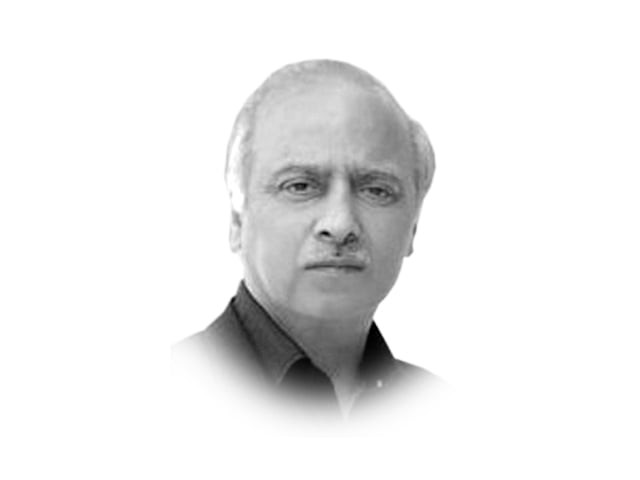Land of some haves, many have-nots
The ruling elite-the politicians and the military-treat power as a privilege rather than as a sacred public trust.

The Pakistani ruling elite uses parliament to tell the sovereign — the people who voted these elites into power — that the MPs enjoy immunity and certain privileges. The latest example of this is Punjab Law Minister Rana Sanaullah’s statement in the provincial assembly that Chief Minister Shahbaz Sharif had sanctioned Rs1.3 million for the medical treatment of the son of a parliamentary colleague. The law minister said that this was done by “relaxing rules”.
Surely this must mean that it was done, if not outside the realm of the law, then of the government’s own rules and regulations?
Contrast this with an alleged fraud that Javed Hashmi, now a central leader of the PTI, claimed was committed in his name. He said that the spending of 40,000 pounds for his treatment abroad, allegedly by the government, was a revelation for him because he never went abroad for treatment!
Now look at the concessions finance minister Hafeez Sheikh extended to the country’s capital and financial markets. During a visit to the Karachi Stock Exchange on January 21, he approved the KSE’s proposals for reforming the capital gains tax. Among other things, it will allow investors to inject money without declaring the source of income till June 30, 2014. This practically runs contrary to the Anti-Money Laundering Act, 2010, and international treaties signed by Pakistan.
The finance minister also happens to be the chairman of the National Executive Committee to Combat Money Laundering, established under Section 5 of the Anti-Money Laundering Act, 2010 — and is under legal obligation (as pointed out by Dr Huzaima Ikram in a recent article in The News) to make recommendations to the federal government for effective implementation of this law and framing of national policy to combat money laundering.
Whether at the provincial level or national, the leading lights of the political elite continue to act and behave in a way that sanctifies violations of, and deviation from rules and regulations. And this boils down primarily to one point; the ruling elite moves with impunity and scant regard for accountability, without any fear of public reprisal, legal scrutiny or challenge by the parliament.
Ironically, most members of parliament act in unison when it comes to safeguarding their perks and privileges. An example of this is the Rs90 billion spent in travel/daily allowance and medical allowance from February 2008 to December 2011 for members of the federal cabinet. Expenses on utilities such as free phones, electricity, and transportation are in addition to this.
Compare this with a cabinet of 32 ministers for 1.2 billion people in India or one of 14 ministers for China’s 1.3 billion people. Also compare what the majority of Pakistanis get in return? They get extremely poor service delivery, questionable justice and power and gas outages, and acute shortages of essential food items such as wheat flour, sugar and edible oil.
Primarily, the exceptional treatment and various concessions that the VIPs get imperil the basic security of the common Pakistani. While the moneyed bigwigs and influential movers and shakers get away with breach of law or laundering illegally acquired finances, ordinary Pakistanis continue to suffer directly as a result of this.
Why should a handful of people be above law and accorded special treatment, while universal charter of human rights as well as the constitution of the Islamic Republic of Pakistan considers all citizens equal?
Published in The Express Tribune, February 2nd, 2012.















COMMENTS
Comments are moderated and generally will be posted if they are on-topic and not abusive.
For more information, please see our Comments FAQ